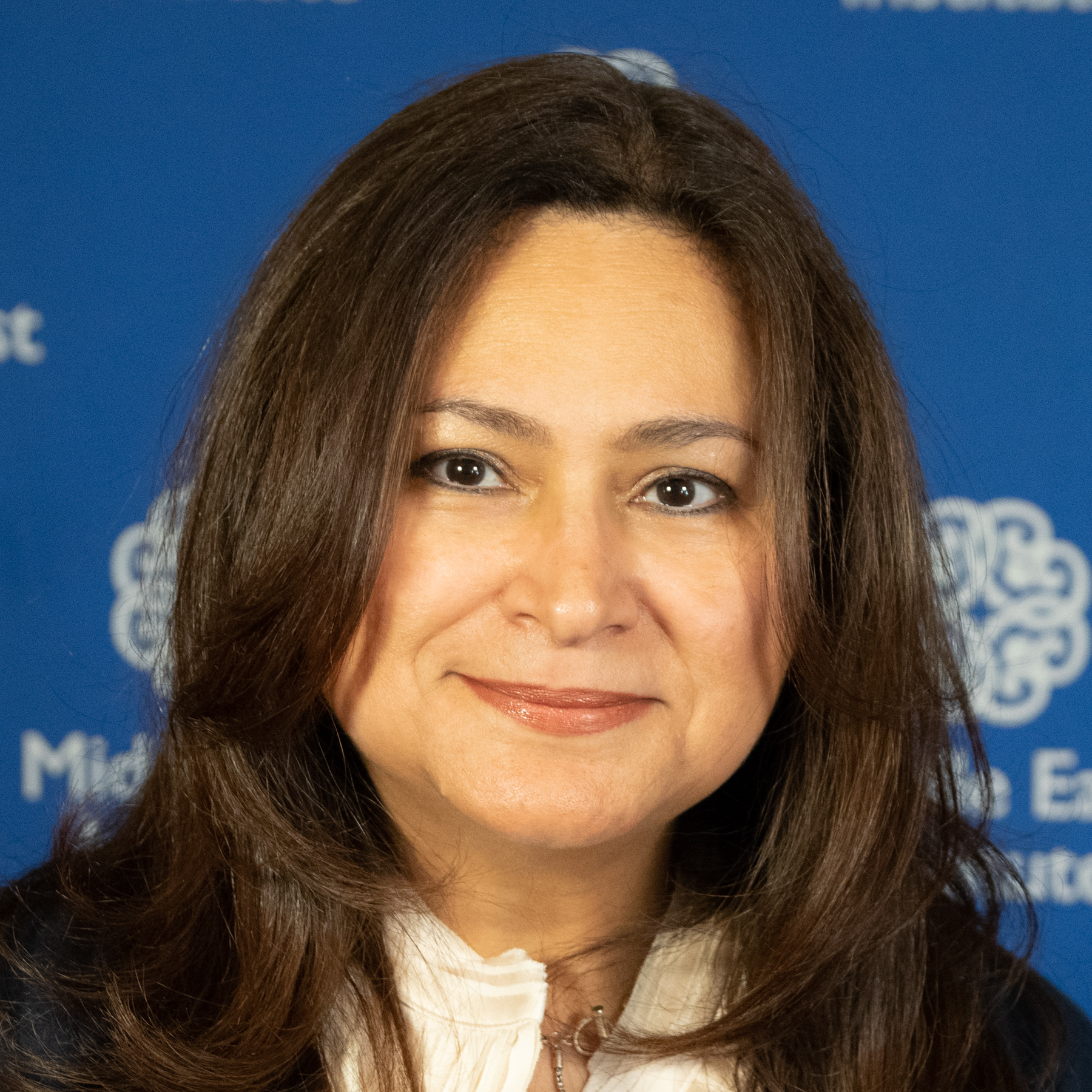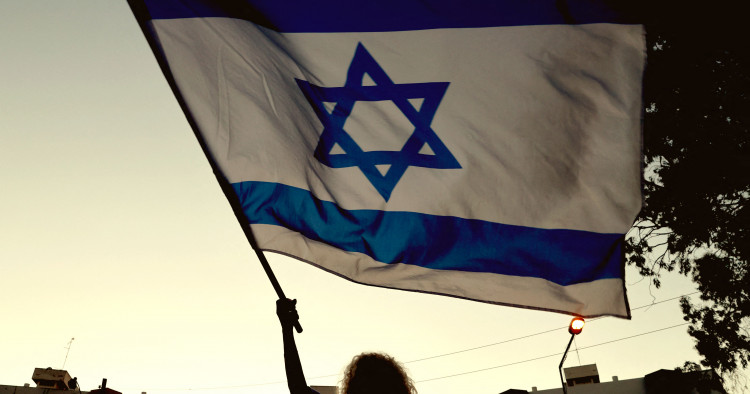Contents:
- The government of change in Israel: Done but not yet dusted
- The Algerian legislative elections: Between rehabilitation and change?
- Iran’s farcical presidential debates
- Egypt rolls out new measures to boost the economy
The government of change in Israel: Done but not yet dusted
Mark A. Heller
Non-Resident Scholar

If all goes according to plan, sometime within the next seven days, the Israeli Knesset will vote confidence in a new government and the Netanyahu era in Israeli politics will come to an end. Until that happens, there can be no certainty that the coalition for change assembled by Yair Lapid, which has a razor-thin majority of 61, will actually take office. The reason is that this coalition is an odd and fragile grouping of eight parties, composed of everything and its opposite — liberals and conservatives, leftists and rightists, Jews and Arabs, religious and secular, homophobes and gays. United only by their distaste for Benjamin Netanyahu and perhaps their desire to install a decency app in Israeli politics, they confront the constant risk that one or two defections could bring the whole edifice tumbling down.
The most prominent challenge to a routine transfer of power comes from the prime minister himself. Netanyahu has focused his attention on a few members of Yamina, the party of Prime Minister-designate Naftali Bennett and Lapid’s most critical (and least enthusiastic) partner. Netanyahu hopes to promote the defection of the “weak links” in Bennett’s party, mostly by persuading their right-wing constituents that by aligning himself with left-wing parties in the coalition, Bennett has betrayed their trust, stolen the election, and committed the greatest fraud in the history of Israel and perhaps the entire democratic world.
Netanyahu’s challenge is reinforced by an amorphous group of movements that have inflamed social media with calls to thwart the political transition — which they somehow equate with treason — though intimidation, provocation, and direct action. Such calls have been endorsed by several prominent nationalist rabbis, who at first urged their followers to use “all means” to prevent the inauguration of an “evil government” and only afterwards clarified that they obviously only meant all legitimate means. The seriousness with which all this is taken is evidenced by the decision of the police to reroute a planned “Flag March” this week by religious-nationalist youth movements away from the Muslim Quarter of the Old City of Jerusalem; deprived of their best hope of provoking major unrest, the organizers of the march decided to cancel it. Beyond that, speculation has mounted about the possibility, if all else fails, of an assault on the Israeli equivalent of the Capitol. In this febrile atmosphere, the director of the General Security Service, responsible among other things for the personal protection of public personalities, has issued an unprecedented warning against the potentially catastrophic consequences of incendiary discourse in the public space.
However, it is not only a Jewish monkey-wrench that threatens to jam up the works of political transition. Arabs, too, are challenged by this process and potentially able to confound its peaceful consummation. In Israel, some view the willingness of Mansour Abbas, leader of the Islamist-inclined United Arab List, to formally join an Israeli government (much less one technically led by a right-wing politician) as siding with the enemy — a betrayal demanding some kind of punishment. And in Gaza, Hamas leaders, already apprehensive that efforts to funnel reconstruction funding through the Fatah-led Palestinian Authority would undermine their own standing, may fear that a new Israeli government without Netanyahu at the helm could, at American urging, further enhance Fatah’s popularity and authority by revitalizing at least material cooperation, and perhaps even political negotiations. The best way to derail that eventuality would be a renewed outburst of violence, seemingly validating Netanyahu’s insistence on the need to stand firm.
In short, there are still potentially serious near-term obstacles to the formation of a new Israeli government. It might be productive to speculate on the course that it might try to chart after the transition takes place, but for that to happen, a new government first needs to pass through the dauntingly small eye of the political needle.
The Algerian legislative elections: Between rehabilitation and change?
Intissar Fakir
Senior Fellow and Director of Program on North Africa and the Sahel

This week’s upcoming parliamentary election in Algeria is another step in what the post-Bouteflika government wants to portray as a significant political transition. However, with calls for a boycott from the Hirak protest movement and an ongoing popular legitimacy crisis for the government, the election itself is only a small part of Algeria’s larger political struggle. At the same time it represents an important milestone as it is expected to be Algeria’s freest legislative election since 1991, after which the country descended into a decade of brutal civil war followed by two decades of authoritarian rule.
The struggle for the future of the Algerian state is between an authoritarian regime reluctant to change and a popular Hirak movement seemingly unwilling to accept anything less than a total transformation. This election is unlikely to clarify this dynamic — but it is worth noting the country is facing a more vocal and active struggle than at almost any time over the past two decades.
These legislative elections are part of the government’s political transition road map, which has so far included the election of a new president in December 2019 and a constitutional referendum in November 2020. Both of these were efforts by the ruling elite to demonstrate a recognition, though far from an embrace, of the need for political change. The government has put in place, following the constitutional amendments of 2020, a new legal and institutional set up for the election, notably an electoral commission to run the process. And through an anti-corruption campaign, albeit a highly politicized one, the government has sought to show that it is capable of bringing accountability to a previously unaccountable elite. Still the election outcome, in large part because of the seemingly democratic framework, is pre-ordained. The incoming lower house is expected to include new faces, but overall the legislative body will be weak, fragmented, and unable to counter-balance a presidency manipulated by a powerful military.
None of what the government has done so far has dispelled the prevailing perception that in practice much remains the same. Algerian politics continue to be dictated by a strong military apparatus that is unlikely to allow this process of political change to stray from its own preferred trajectory. Hirak, for its part, has sustained popular mobilization despite the global pandemic and in the face of repression and arrests. But it has failed to significantly shape the government’s decreed transition plan.
Despite the predetermined outcome, a couple of key indicators are worth watching. The first is whether voter turnout exceeds expectations. This could signal that the government’s transition plan is gaining legitimacy. The second is whether Hirak can mobilize larger crowds in opposition to and maintain momentum after the election. The government has tried at every turn to prevent a genuine transition to a more open, free, and accountable political and economic system, but it is still worth noting that this is a change from decades of highly predictable politics.
Follow on Twitter: @IntissarFakir
Iran’s farcical presidential debates
Alex Vatanka
Director of Iran Program and Senior Fellow, Frontier Europe Initiative

The first of three presidential debates in Iran was held on June 5. Few had any expectations, but the result was a farce that bordered on tragic comedy. Seven men, all of whom have served as loyal members of the Islamic Republic since 1979, attempted to sell themselves as visionary leaders with the recipe to fix the country’s many ailments. Never mind that each had been pre-approved by the unelected supreme leader, Ayatollah Ali Khamenei, to be on the stage for the sake of putting on an election show. That the turnout will likely be a historic low of around 20% signifies the pointlessness of these elections.
The Iranian public clearly does not think the political system can be reformed through highly manipulated elections. In the 2009, 2013, and 2017 elections, the presidential debates had something to offer as the candidates engaged in at least some limited policy debate. This time around, none of the seven men dared to question the most sensitive issues — and they had good reason not to do so. Khamenei has made it clear what should not be discussed. The result was a travesty of a debate. The state of the Iranian economy was hotly argued over, with lots of personal attacks, but no one touched on how Iran ended up becoming the most sanctioned country in the world, resulting in hundreds of billions of dollars in lost income, record capital flight and brain drain, historic inflation, and the birth of a sanction-busting industry that has made corruption pervasive.
In the end, history may show that the person ultimately responsible for arranging this fiasco will be its biggest loser. While Khamenei hates to be depicted as a medieval caliph, that is the outcome of his micro-management of this presidential election. Khamenei wants it both ways: to practically decide election outcomes but also to claim to oversee an “Islamic Republic” where people’s votes matter. After the June 5 fiasco, Khamenei himself saw it necessary to stress that the “key to the Islamic Republic’s permanency is in the 2 words: ‘Islamic’ & ‘Republic.’” Khamenei knows he has all but ended any “republican” aspect to the “Islamic Republic” and moved the country toward becoming a caliphate of sorts. He may not want to admit it, but the Iranian people can see through the mockery.
Follow on Twitter: @AlexVatanka
Egypt rolls out new measures to boost the economy
Mirette F. Mabrouk
Senior Fellow, Director of the Egypt program

Someone at Egypt’s Ministry of Finance has been busy.
The last couple of days have seen two developments that might help boost the economy. And that would be good news because while the demise of Egypt’s economy has been greatly (and frequently) exaggerated, it is an inescapable fact that it has significant vulnerabilities, among them an overreliance on construction to prop up growth figures.
The first development reflects Egypt’s desire for a large share of the Islamic finance market, with its new sovereign sukuk bill, the draft law for which got a preliminary thumbs up from parliament on June 6. Executive regulations would follow ratification by a brief three months.
The potential is enormous; the Islamic finance market was estimated at a whopping $2.7 trillion last year and caters to those who find regular banking and its interest rates lean too close to the concept of usury. Sukuk leverage state-owned securities and avoid interest-bearing debt by offering sale-leaseback structures instead.
The new draft law would hit two birds with one regulatory stone; it would expand Egypt’s debt instruments and it would, Egypt hopes, attract more investors. Apart from the usual clients attracted to the country’s debt instruments, Egypt is hoping to attract investors from Indonesia, Malaysia, Saudi Arabia, and the UAE, which make up around 90% of the global sukuk market.
If ratified (and it seem extremely likely that it will be) the act would let the government, specifically the Ministry of Finance, which will be the sole authority allowed to issue sukuk, sell five different types in local and foreign currencies in debt marketplaces both locally and globally. The act stipulates a term limit of 30 years on all sovereign sukuk and establishes the Sovereign Sukuk Company, a joint stock company for sales management and execution. There will also be a regulatory oversight committee to adjudicate any disputes and an association for the protection of investor rights.
June 6 also saw the publication of the final version of the Unified Tax Act’s regulations in the official Gazette. While that sounds like a mouthful, it’s essentially a blessing for anyone having to pay Egyptian taxes via the country’s new single tax portal. It includes instructions for taxpayers on accessing and using the platform, filing, and paying taxes. These include all dues, like income taxes, value-added taxes, and the dreaded stamp taxes, long a thorn in every accountant’s side. The new draft had taken into account previous complaints by the Federation of Egyptian Industries, chief among them a “one size fits all” method of punishment for tax violations regardless of type or scale.
The developments are newsworthy in and of themselves but they’re especially relevant when viewed in the context of an economy facing an increasingly competitive market. Egypt’s economy will have to diversify greatly, moving away from state-sponsored construction to boost growth and employment figures. Diversification entails a well-regulated and equal playing field with clear lines of accountability. And that goes for both international and local investors.
Follow on Twitter: @mmabrouk
Photo by JACK GUEZ/AFP via Getty Images
The Middle East Institute (MEI) is an independent, non-partisan, non-for-profit, educational organization. It does not engage in advocacy and its scholars’ opinions are their own. MEI welcomes financial donations, but retains sole editorial control over its work and its publications reflect only the authors’ views. For a listing of MEI donors, please click here.













